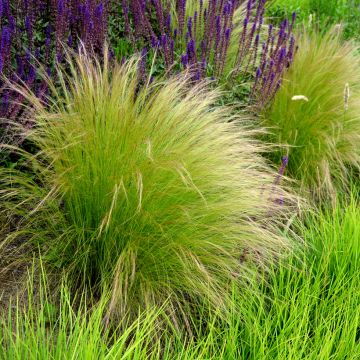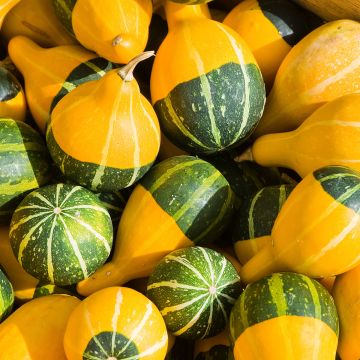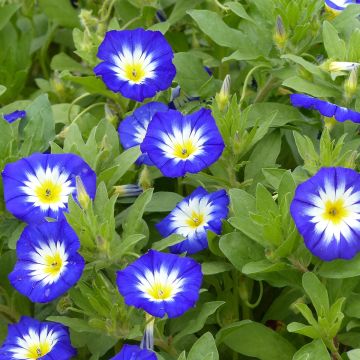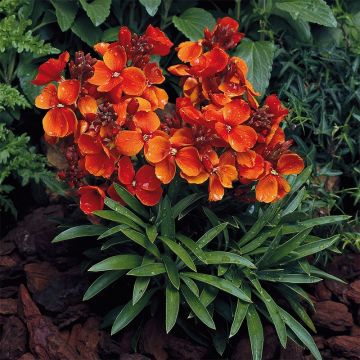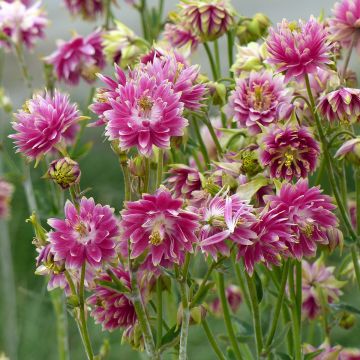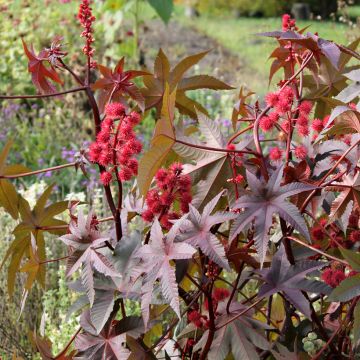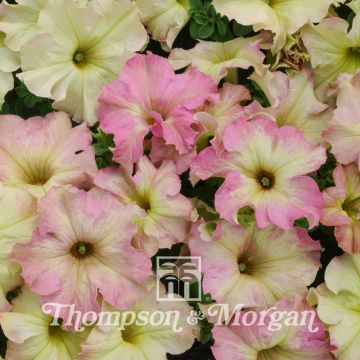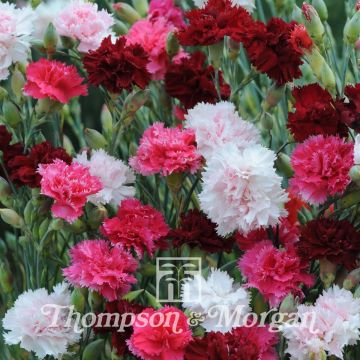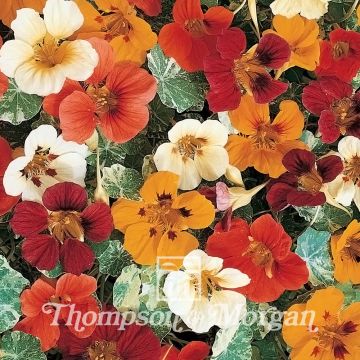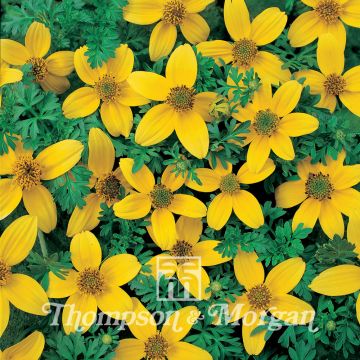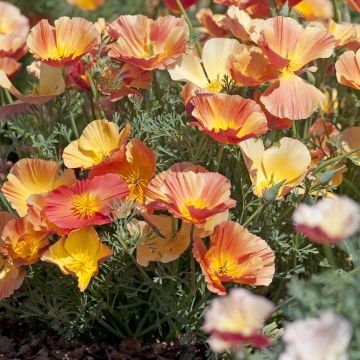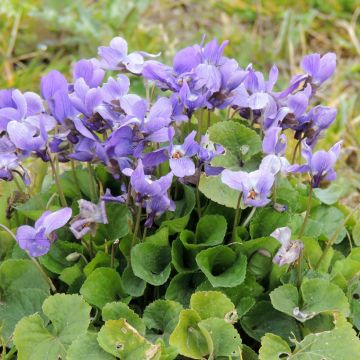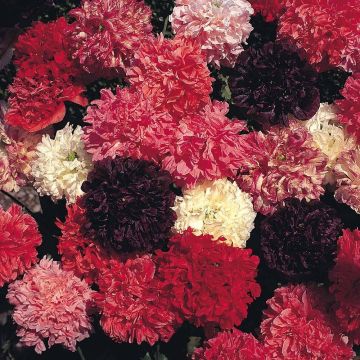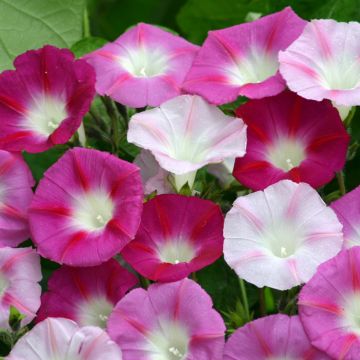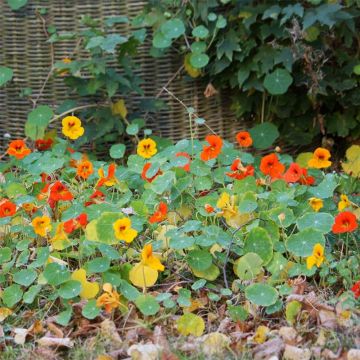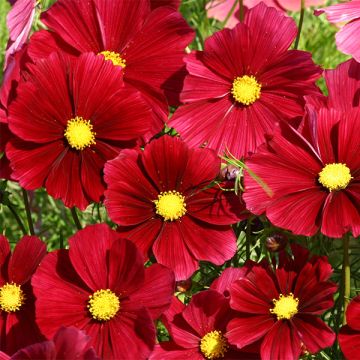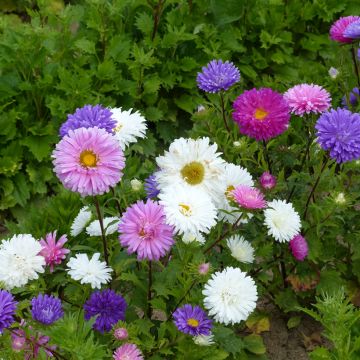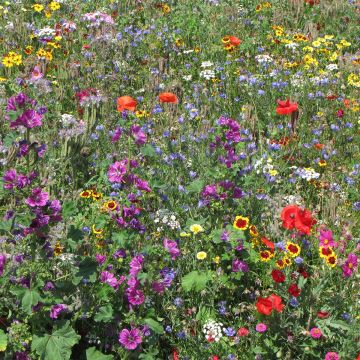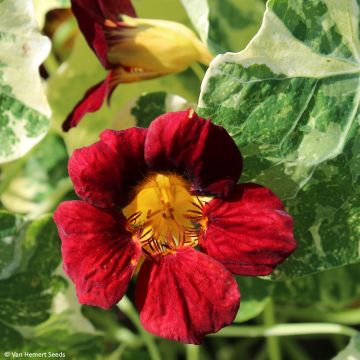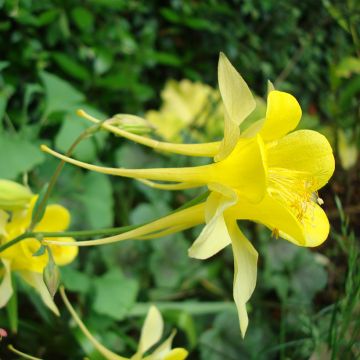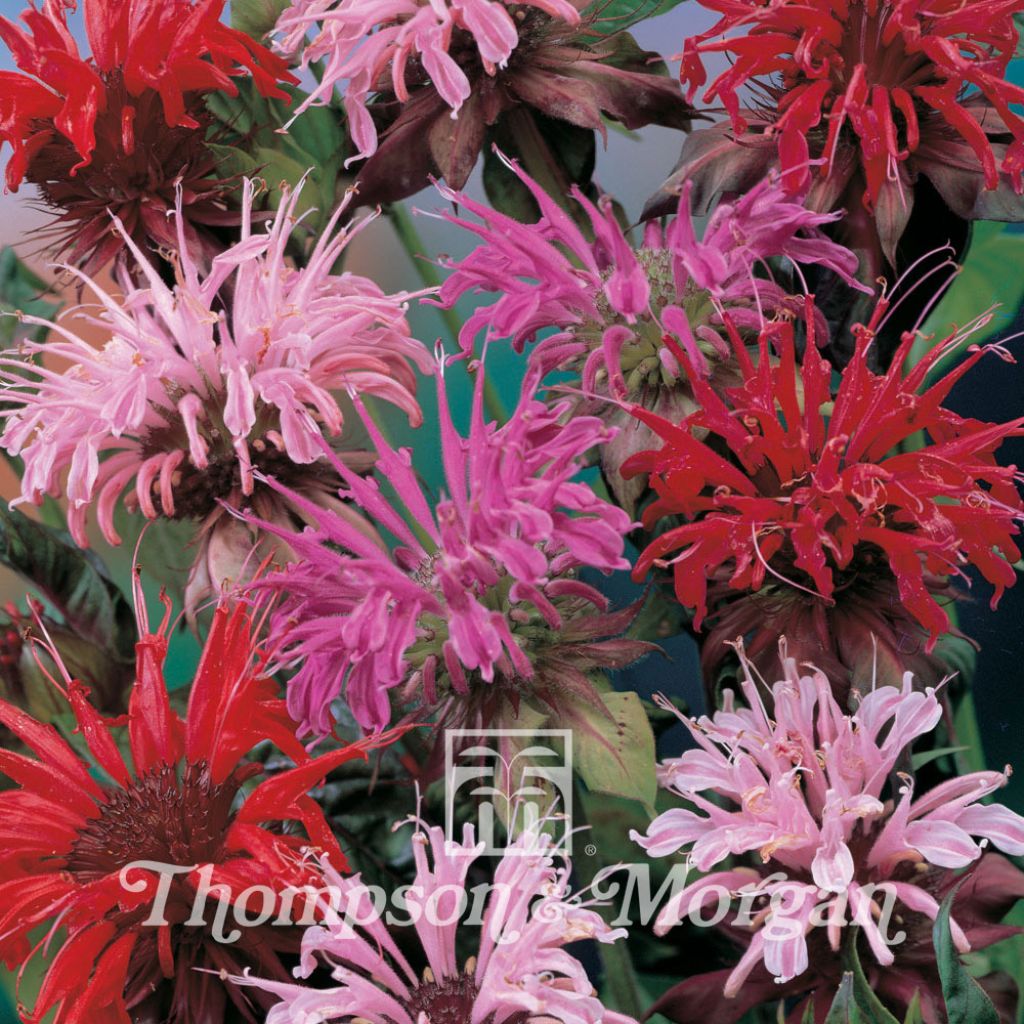

Monarda Didyma T&M Superb Mixed
Monarda didyma T&M Superb Mixed seeds - Bergamot
Monarda didyma Superb Mixed
Bergamot, Scarlet Beebalm, Oswego Tea, Crimson Beebalm
Only a few seeds have sprouted. PROMESSE DE FLEURS RESPONSE: We are truly sorry as we place great importance on the quality of our plants and their success in growing. If you encounter any issues, please do not hesitate to contact our Customer Service at 03.61.76.08.10 or by email: serviceclient@promessedefleurs.com and we will proceed with a replacement or refund if necessary.
MICHELE THEOLEYRE, 16/10/2016
This item cannot be shipped to the selected country
Dispatch by letter from €3.90
More information
Schedule delivery date,
and select date in basket
This plant carries a 6 months recovery warranty
More information
We guarantee the quality of our plants for a full growing cycle, and will replace at our expense any plant that fails to recover under normal climatic and planting conditions.
Seed-only orders are dispatched by sealed envelope. The delivery charge for seed-only orders is €3.90.
Does this plant fit my garden?
Set up your Plantfit profile →
Description
Monarda didyma T&M Superb Mixed is a selection of red, pale pink, and bright pink flowers with a menthol scent when crushed and a slightly dishevelled appearance. They are grown for their ornamental and culinary qualities and are unrivalled for structuring the edges of flower beds.
Monarda didyma, also known as Oswego Tea - Bergamot - Golden Balm or Menthol Bee Balm, is a herbaceous perennial native to North America. It has subsequently naturalised in Europe with surprising ease. It belongs to the family of Lamiaceae, whose members often possess pockets of aromatic essences from which essential oils are derived.
These mixed flowers produce a profusion of flower stalks topped with large pale pink, bright pink, red, and mauve inflorescences arranged in whorls. Each inflorescence has tubular and two-lipped corollas: the trilobed lower lip is surmounted by a very fine upper lip. The protruding stamens give the overall appearance a dishevelled look, supported by large decorative bracts. Flowering occurs from June to September. Both the leaves and the flowers produce a rich menthol fragrance when crushed. The foliage is a vibrant green and slightly hairy on the underside. It has very slightly indented margins. Bees and butterflies love nectar-rich bee balm.
It will thrive in both sun and shade and prefers ordinary, moist soil that does not dry out in summer. In an aromatic or natural garden, it remains quite distinctive in the middle of a flower bed. It will harmonise beautifully with lobelias or yarrows in colourful festoons.
Monarda dydima is cultivated for its ornamental qualities as well as its aromatic and medicinal properties. The leaves can be used fresh or dried in herbal teas. When added to meat or fish dishes, they impart a subtle menthol flavour. The flowers can enhance any salad with their slightly spicy taste. Bee balm is believed to have properties that can help treat respiratory conditions and is reputed to aid digestion and stimulate appetite.
Report an error about the product description
Flowering
Foliage
Plant habit
Botanical data
Monarda
didyma
Superb Mixed
Lamiaceae
Bergamot, Scarlet Beebalm, Oswego Tea, Crimson Beebalm
North America
Other Thompson and Morgan seeds
Planting and care
Sow from January to March in cold frames (or from March to May in a greenhouse), in a mixture of compost with a little soil. Sowing during this period will allow you to enjoy the flowering of monardas from the first year. Keep them where temperatures can drop between 13 and 15°C at night. Do not exclude light as it contributes to germination, which will take 14 to 21 days. Afterwards, acclimatise the seedlings to outdoor temperatures for 10 to 15 days. Once strong enough to handle, transplant them into well-worked soil with added compost. Be sure to space your plants 45 cm (18in) apart. They will be happy in full sun or partial shade in ordinary soil and prefer soil that is moist without retaining water and does not dry out in summer.
Sowing period
Intended location
-
, onOrder confirmed
Reply from on Promesse de fleurs
Flower seeds
Haven't found what you were looking for?
Hardiness is the lowest winter temperature a plant can endure without suffering serious damage or even dying. However, hardiness is affected by location (a sheltered area, such as a patio), protection (winter cover) and soil type (hardiness is improved by well-drained soil).

Photo Sharing Terms & Conditions
In order to encourage gardeners to interact and share their experiences, Promesse de fleurs offers various media enabling content to be uploaded onto its Site - in particular via the ‘Photo sharing’ module.
The User agrees to refrain from:
- Posting any content that is illegal, prejudicial, insulting, racist, inciteful to hatred, revisionist, contrary to public decency, that infringes on privacy or on the privacy rights of third parties, in particular the publicity rights of persons and goods, intellectual property rights, or the right to privacy.
- Submitting content on behalf of a third party;
- Impersonate the identity of a third party and/or publish any personal information about a third party;
In general, the User undertakes to refrain from any unethical behaviour.
All Content (in particular text, comments, files, images, photos, videos, creative works, etc.), which may be subject to property or intellectual property rights, image or other private rights, shall remain the property of the User, subject to the limited rights granted by the terms of the licence granted by Promesse de fleurs as stated below. Users are at liberty to publish or not to publish such Content on the Site, notably via the ‘Photo Sharing’ facility, and accept that this Content shall be made public and freely accessible, notably on the Internet.
Users further acknowledge, undertake to have ,and guarantee that they hold all necessary rights and permissions to publish such material on the Site, in particular with regard to the legislation in force pertaining to any privacy, property, intellectual property, image, or contractual rights, or rights of any other nature. By publishing such Content on the Site, Users acknowledge accepting full liability as publishers of the Content within the meaning of the law, and grant Promesse de fleurs, free of charge, an inclusive, worldwide licence for the said Content for the entire duration of its publication, including all reproduction, representation, up/downloading, displaying, performing, transmission, and storage rights.
Users also grant permission for their name to be linked to the Content and accept that this link may not always be made available.
By engaging in posting material, Users consent to their Content becoming automatically accessible on the Internet, in particular on other sites and/or blogs and/or web pages of the Promesse de fleurs site, including in particular social pages and the Promesse de fleurs catalogue.
Users may secure the removal of entrusted content free of charge by issuing a simple request via our contact form.
The flowering period indicated on our website applies to countries and regions located in USDA zone 8 (France, the United Kingdom, Ireland, the Netherlands, etc.)
It will vary according to where you live:
- In zones 9 to 10 (Italy, Spain, Greece, etc.), flowering will occur about 2 to 4 weeks earlier.
- In zones 6 to 7 (Germany, Poland, Slovenia, and lower mountainous regions), flowering will be delayed by 2 to 3 weeks.
- In zone 5 (Central Europe, Scandinavia), blooming will be delayed by 3 to 5 weeks.
In temperate climates, pruning of spring-flowering shrubs (forsythia, spireas, etc.) should be done just after flowering.
Pruning of summer-flowering shrubs (Indian Lilac, Perovskia, etc.) can be done in winter or spring.
In cold regions as well as with frost-sensitive plants, avoid pruning too early when severe frosts may still occur.
The planting period indicated on our website applies to countries and regions located in USDA zone 8 (France, United Kingdom, Ireland, Netherlands).
It will vary according to where you live:
- In Mediterranean zones (Marseille, Madrid, Milan, etc.), autumn and winter are the best planting periods.
- In continental zones (Strasbourg, Munich, Vienna, etc.), delay planting by 2 to 3 weeks in spring and bring it forward by 2 to 4 weeks in autumn.
- In mountainous regions (the Alps, Pyrenees, Carpathians, etc.), it is best to plant in late spring (May-June) or late summer (August-September).
The harvesting period indicated on our website applies to countries and regions in USDA zone 8 (France, England, Ireland, the Netherlands).
In colder areas (Scandinavia, Poland, Austria...) fruit and vegetable harvests are likely to be delayed by 3-4 weeks.
In warmer areas (Italy, Spain, Greece, etc.), harvesting will probably take place earlier, depending on weather conditions.
The sowing periods indicated on our website apply to countries and regions within USDA Zone 8 (France, UK, Ireland, Netherlands).
In colder areas (Scandinavia, Poland, Austria...), delay any outdoor sowing by 3-4 weeks, or sow under glass.
In warmer climes (Italy, Spain, Greece, etc.), bring outdoor sowing forward by a few weeks.

































